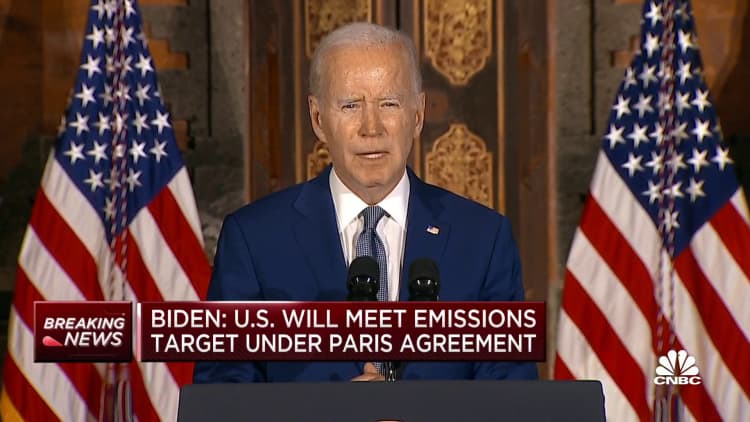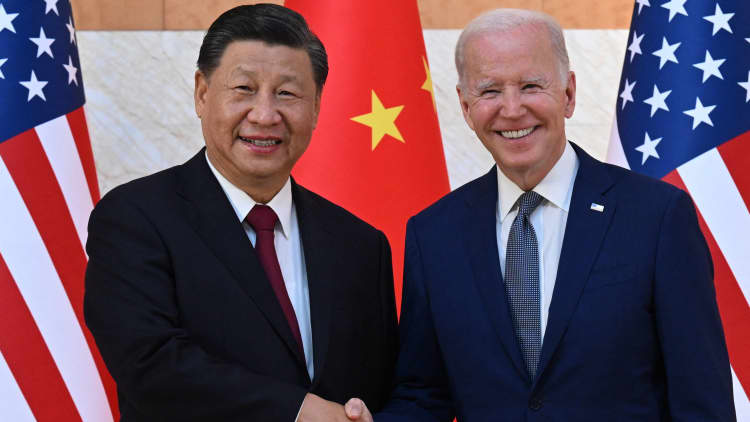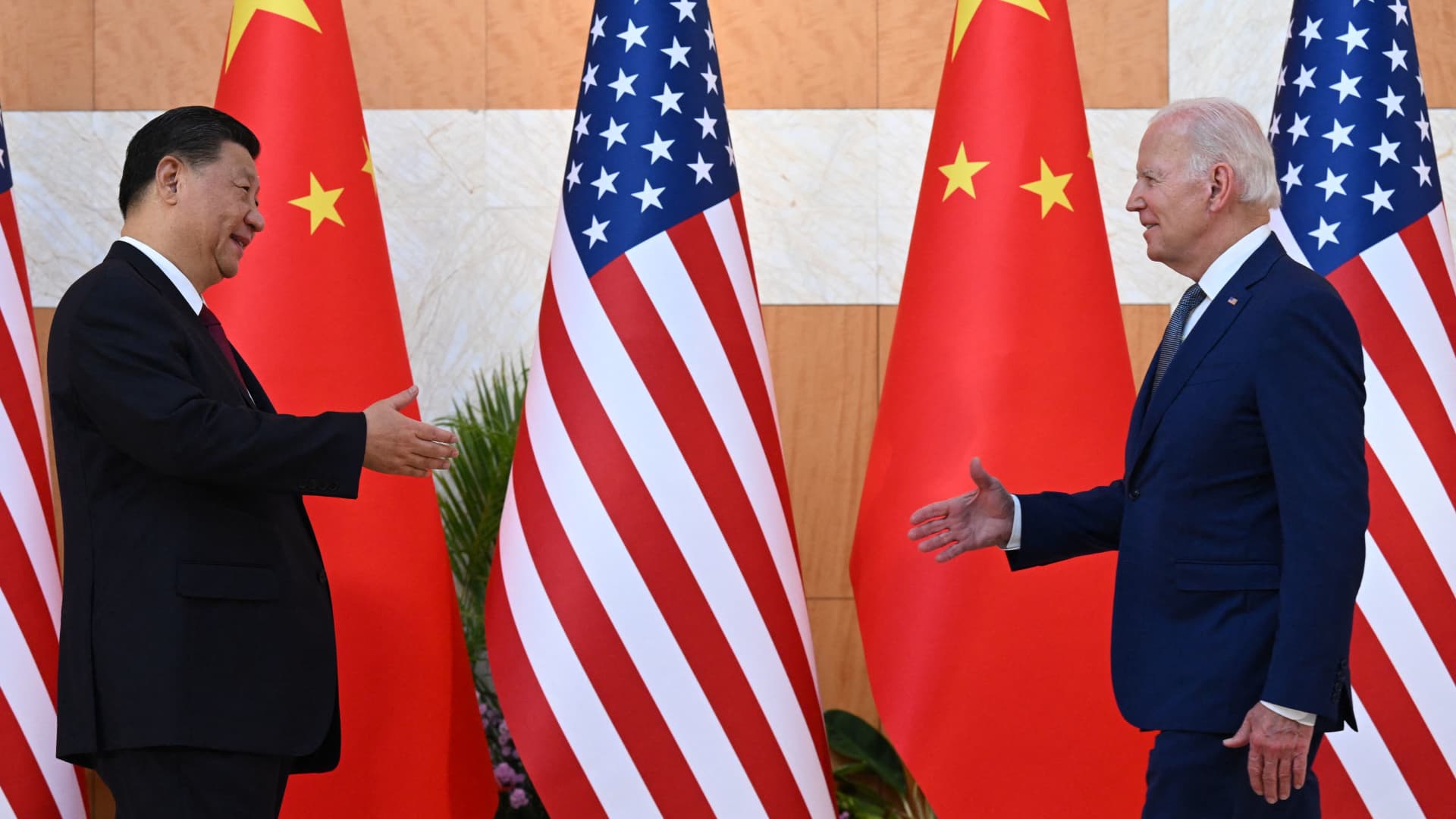[ad_1]
U.S. President Joe Biden on Monday raised objections to China’s actions toward Taiwan in a three-hour meeting with Chinese leader Xi Jinping.
The meeting took place in Bali, a day before the G-20 summit is due to kick off, and was the first time the two superpower leaders had met in person since Biden took office.
“We need to chart the right course for the China-U.S. relationship,” Xi said at the opening of the meeting in Mandarin, according an official English translation broadcast.
“We need to find the right direction for the bilateral relationship going forward and elevate the relationship.”
US President Joe Biden (R) and China’s President Xi Jinping (L) shake hands as they meet on the sidelines of the G20 Summit in Nusa Dua on the Indonesian resort island of Bali on November 14, 2022.
Saul Loeb | Afp | Getty Images
Xi emphasized the need to learn from history, using it “as a mirror” to “guide the future,” according to a release from China’s Foreign Ministry. He said the bilateral relationship is not in a situation that’s in the interest of the two countries’ peoples, and isn’t what the international community expects.The meeting took place in Bali, a day before the G-20 summit is due to kick off.
The U.S. and China can manage their differences and stop competition from turning into conflict, Biden said. A White House readout of Biden’s remarks said that the two leaders spoke “candidly about their respective priorities and intentions across a range of issues.”
“President Biden explained that the United States will continue to compete vigorously with the PRC [People’s Republic of China], including by investing in sources of strength at home and aligning efforts with allies and partners around the world,” the readout said.

“He reiterated that this competition should not veer into conflict and underscored that the United States and China must manage the competition responsibly and maintain open lines of communication. The two leaders discussed the importance of developing principles that would advance these goals and tasked their teams to discuss them further.”
The two leaders held a videoconference in Nov. 2021 and, among other communication, had a call in late July.
Tensions between the U.S. and China have escalated over the last several years, touching flashpoints ranging from Taiwan and the war in Ukraine, to the ability of American companies to sell high-end tech to Chinese businesses.
On Taiwan, Biden reportedly told Xi Monday that the U.S.’s “one China policy” had not changed. “The United States opposes any unilateral changes to the status quo by either side, and the world has an interest in the maintenance of peace and stability in the Taiwan Strait. He raised U.S. objections to the PRC’s coercive and increasingly aggressive actions toward Taiwan, which undermine peace and stability across the Taiwan Strait and in the broader region, and jeopardize global prosperity,” the White House readout said.

Each president was accompanied by nine government officials.
Representatives for the U.S. side included Treasury Secretary Janet Yellen, Secretary of State Antony Blinken and Ambassador to China Nicholas Burns.
Accompanying Xi were Ding Xuexiang, one of the new members of China’s highest circle of power, and He Lifeng, head of the National Development and Reform Commission. Foreign Minister Wang Yi and Assistant Foreign Minister Hua Chunying also attended.
[ad_2]
Image and article originally from www.cnbc.com. Read the original article here.

